|
The most-asked questions about funerals…
…are to do with when they are held. This is either searching when an upcoming service IS taking place (See Facebook post of 7 Aug 2023 for tips), or when it MAY or CAN be held. Can you have a funeral on a Saturday? Can you have a funeral on a Sunday? A twilight funeral? What about alternative locations for funerals? These are some of the popular questions. So, here are 20 factoids you need to know: They refer to funerals in England - there are different arrangements elsewhere. 1. Most funerals take place on weekdays typically between 9 – 4 2. Friday is the most favoured day - as it's more practical for arranging leave before the weekend. 3. Popular times are late morning & around lunch. These will book up fastest. You may have a wait if there's a particular day and time you have in mind. 4. Weekend funerals may be offered by churches, some crematoria & funeral directors at request. This may incur extra charges. 5. Some crematoria have ‘dynamic pricing’ – popular ‘slots’ cost more. 6. Shorter crem services, those for committal only, or unattended services (direct cremation), are cheaper. Ask your local bereavement services if the fees vary between days, times, and service chapels. 7. You may separate final disposition (what happens to the body) from ceremony (the celebration of life) and have them on different days. This can save money, distress and the rush to make arrangements. 8. Crematoria vary in the services available daily, due to the standard service length at each – from 20 minutes to 1 hour. Some worry that shorter services give a production-line feel, especially if mourners leaving and arriving cross. There are more options to avoid this. 9. Funeral days/times are a compromise between your preference, and logistics (e.g., how busy your funeral director is & their prep & travel between services – many independents have just 1 hearse). 10. Burial times may depend on season – with a shorter window as it gets dark earlier. Natural/green burial sites will advise you on the practicalities of a burial at their site. 11. Funeral celebrants offer the greatest flexibility over day, time (including twilight services) & location of farewelling, so contact them first. 12. Most UK funerals take place 2-3 weeks after a death. 13. Many religious funerals within 24 hours if practicable (Muslim, Hindu, and Jewish – but not on Shabbat), or a few days (Catholic). 14. There are more options for burial than you might think. You can be buried on your own land (subject to some regulations) .Even if you are not religious, you may be buried in your parish church, if there’s room. 15. Funerals may be delayed if a coroner’s report is required (not needed if a person dies within 4 weeks of being seen by a doctor for a condition) 16. For special requests, there may be a lead-time to factor in (e.g., availability of a themed hearse, custom-order coffin or shroud) 17. You may choose ANY crematorium. It doesn’t have to be the local one. 18. You may choose ANY location for the service, full stop! 19. Some funeral homes have their own service chapel. This may give you more privacy and an intimate feel. 20. Funeral celebrants specialise in alternative locations, such as a service at home, the village hall, or a venue barn or outdoor space (they’re not just for weddings!).
0 Comments
Every so often, a horror story reaches us regarding malpractice in a funeral home. Fortunately, these instances are rare, and most funeral directors and staff in the sector are caring and conscientious, and set themselves the highest standards.
A recent case in the news about a Hull funeral home has understandably broken the hearts of the dozens of families affected, and shaken the trust of the public in 'undertakers' and 'funeral parlours', as the media sometimes still refers to them. There is a fear of what might go on behind closed doors in the care of the deceased, and a worry about corner cutting motivated by profit. I understand the unease, through personal experience. I was once approached direct by a family to lead the service for their person. It was only when I met with them I discovered that the 'funeral director' was a known for offering a service that refelcted the very low fees. The family expressed concerns that they had not been treated well and prevented from seeing their loved one, and in my opinion, the funeral team at the service were shambolic, acting with less dignity than one would have hoped for. It was a sad sight. I stepped in to act as funeral director as the company didn't bother to send one! This was *not* the company currently making headlines, but similar operators do exist who fall far short of expected standards. How can this be? Most people are shocked to discover how little regulation there is in the funeral sector, and that it's relatively easy to set up as a funeral director (if you can afford to). So, here are a few things you should know, before you entrust your person, or yourself, to the care of a funeral home. Regulation in the Funeral Sector in England – An Overview This short guide looks at funeral homes only, and not funeral plan providers, crematoria, or online direct cremation companies. All information is given in good faith, and is indicative, not exhaustive. Some examples from Lincolnshire are used for illustration and clarification. A. What You Need to Know
B. Voluntary Trade Organisations & Codes of Practise There are two UK associations that set out a code of conduct for professional and ethical standards for funeral directors. These include guidance on best practice for care of the deceased, confidentiality and data protection, and handling of complaints.
The two bodies are: NAFD – National Association of Funeral Directors. Both independent funeral homes and corporate chains may be members. Look for the symbol of a gold lion on a blue background on funeral home literature. You can find the code here: https://www.nafd.org.uk/standards/the-funeral-director-code/ SAIF – National Society of Allied and Independent Funeral Directors. SAIF is, as the name suggests, for independently-run funeral homes. The logo is a pale blue oval on darker blue. You can find the code here: https://saif.org.uk/wp-content/uploads/2020/10/Code-of-Practice-Oct-2020-with-Logo.pdf When visiting a website or funeral home, look for a trade logo; and if there is none, ask why they have chosen not to join a trade body, if they have a code of practise, and what their feedback and complaints process is. Read reviews on the website, and better still, look at Google or Social Media platforms, where the funeral home cannot select which reviews appear. If reviews are turned off, this should be a red flag. Remember to leave a review after to help others comparing funeral homes, and credit good standards. If there are any concerns, report them to the trade body – assuming they’re in one - or in extreme circumstances, the police. C. Training Funeral directors do not have to have any training to set up a funeral home, or work as a funeral director. Some funeral homes will insist their funeral directors are trained to recognised standards, with accredited qualifications from the NAFD, and/or BIFD (the British Institute of Funeral Directors). Don’t assume that a logo on display means some/all funeral directors at the home are trained. For recognised qualifications:
Some funeral homes, whether group or family-owned, will have their own training systems. Others will have no trained staff at all. Enquire generally about how long the staff have worked there and what training they did, and if you’re not reassured, go elsewhere. D. Chains and Independents There are national chains (like Cooperative Funeralcare and Dignity), and regional chains (e.g. Lincolnshire Co-op and Beverley Funerals). Companies like these are usually members of the NAFD. Note that some still retain a prior name if a business that was once independent/family owned, has since been taken over (e.g. the once family-owned Kettle funeral home branches in Lincolnshire are now run by chains – by Cooperative Funeralcare in Grimsby, and Dignity in Brigg). Corporate branding colours and the footer of the website and documentation should indicate if the funeral home is part of a group. Independent or family-owned businesses may be members of the NAFD and/or SAIF, or neither. There are differences in the ways corporates and independents operate, in terms of their business model (e.g. if commission is offered, or there are sales targets to meet) and the type of care and personal service offered (e.g. if you are assigned a funeral director who will be your continuous point of contact). Standards are more likely to be comparable between branches with chains due to the management structure, but this does not indicate they are higher than those of independents. It is up to you to decide which is right for you. Chains benefit from economies of scale which may be reflected in an extensive product range, and fleet and staffing availability. Independents may be more affordable, lacking so many overheads, and offer a more personal service, with strong ties to, and understanding of, the local community. Bear in mind what was once your family’s go-to local funeral home may be staffed and operated differently if it is a long time since your family last used it. E. CMA Legal Orders As a result of the Competitions and Markets Authority survey of the funeral sector, and report on areas of concern to government in 2020, the following orders are now part of the legal requirement for funeral homes: 1. Funeral directors must display a Standardised Price List (including attended and non-attended funerals), Additional Options (such as collection of ashes and embalming) and up-to-date typical fees for local crematoria and burials. Look for these online and displayed in the window of the premises. This is so you can see total costs, and compare providers. You may compare and shop around to choose the funeral home and service that is right for you. Some categories may say POA or offer a price range. If you need help, ask for a printed itemised quote. Better still, call or pay a visit to a few funeral homes, and see if you feel comfortable with how they receive you and answer your questions. You may need to make an appointment, rather than drop in. 2. Funeral directors must display their terms of business (including payment options and late charges). This should be made clear to you before you enter into any contract. Some funeral homes require payment upfront; others will take a deposit. This helps you budget, and be aware of how much and when the payment of deposit and balance are due. Be sure to ask for this in writing, or by email, if it is not readily offered. 3. Funeral directors should not solicit for business (e.g. coroner contracts), offer incentives for referrals (e.g. from care homes), and must disclose interests (e.g. donations) and any conflict thereof. This is to deter profiteering through bribery and breach of trust. You may select your chosen funeral director yourself (and any related providers, such as celebrants and florists), and your choice should be informed, and free from bias or influence. For brevity, this piece has just scratched the surface, so if you have further questions, get in touch and I can answer your general queries or direct you to a trusted Grimsby funeral home or funeral director if you'd like to speak to one. If you'd like a pdf copy of this, email me at [email protected] © 2024 Dawn Kemp Celebrant www.dawnkempcelebrant.com Perhaps you’ve heard a friend or neighbour has died, or wish to check the date and time of a funeral.
Here are some ways to find out.
Still can’t find the service details? One of these may be why.
LINKS Funeral Notices https://funeral-notices.co.uk/national/death-notices Lincolnshire Cooperative Funerals https://www.lincolnshire.coop/funeral/obituaries Jason Threadgold https://www.jasonthreadgoldfuneraldirector.com/upcoming-services/ Near & Near https://www.facebook.com/Near-Near-Undertakers-Ltd/ Now I have your attention, let’s look at the most common FAQS about getting hitched. How much is a wedding?Let’s break that down into its two aspects – getting married, and having a wedding celebration. I’m omitting faith marriage here, and referring to the law in England/Wales. Getting marriedHow much does it COST to legally register a MARRIAGE? It depends on how the type of ceremony you choose and where it is held. The cheapest option is the STATUTORY civil ceremony, conducted at a register office. There will also be registrar-led ceremonies conducted elsewhere &/or with some scope for personalisation which cost more. These may have a name like Enhanced ceremonies or Celebration ceremonies. How can I SAVE MONEY getting married? Book a statutory ceremony. You may: book only a statutory ceremony at the register office, follow a statutory with a reception at a venue of choice, or a have a celebrant-led ceremony at any venue or location. What is a STATUTORY civil wedding ceremony? This is the legal minimum needed to register your marriage, conducted by a registrar. It’s also called a two-by-two (2x2) as it comprises the couple and 2 witnesses only. You have a LEGAL RIGHT to this for your marriage or civil partnership. HOW MUCH is a STATUTORY civil wedding ceremony? The fee is set by government. It’s approximately: 50 pounds 50 words 15 minutes Plus, the fee to give notice - about £35 each. HOW do you book a REGISTRAR to marry you? Go to the government website for information on the process and documents you need, and contact your local register office(s) through the links: https://www.gov.uk/marriages-civil-partnerships/plan-your-ceremony Is it hard to BOOK a statutory wedding ceremony? It depends where you live. Some councils may not offer it at ALL register offices in the district. Some council websites make it hard to find the information you need. Some councils may say they only offer the more expensive ‘enhanced’ ceremonies. Some councils may offer it only on a limited number of set times or days each month. Some councils may be booked up many months ahead. Some councils may not let you book far ahead. Remember: you have a LEGAL right to access a statutory ceremony. But some councils don’t make it as easy as they could. You may prefer to give notice locally and have your legal registration somewhere else, wherever you can get in. Enquire as soon as you can. What if you have PROBLEMS booking your wedding? I hope you don't, but if you do, complain. Ensure you follow up calls with registrars with an EMAIL recapping the problem, and what you were told (or not told), and state that you are aware you have a legal right to access a statutory civil marriage, if that is what you want. Keep a record. If you had planned to have a registrar at venue and they are booked on your preferred day, swap to a celebrant-led ceremony at the venue. If you change your mind from having a registrar ceremony to a celebrant-led wedding, ask your celebrant how to swap from a statutory if you’re unsure. Ask a celebrant what to say when contacting the register office so you get what you are entitled to, if you encounter problems. What OTHER COSTS are there when getting married? Anything else you pay above the cost of a statutory ceremony is OPTIONAL, and is part of your WEDDING, not the legal formalities. This includes those you’ll know about - venue, food, drink, décor, flowers, photographer, entertainments, transport, honeymoon, wedding attire etc, which many blogs cover. For the costs of the ceremony itself, you may have: Enhanced registrar ceremony (limited options to personalise the set script, subject to registrar approval, and guests allowed to attend) at one of these two: Registrar at council ceremony room (a nicer or bigger room will cost you more) Registrar ceremony when attending a licensed-for-marriage venue (the same standardised ceremony, but hundreds of pounds more for attendance) Or: Statutory registration followed by a celebrant-led ceremony (complete personalisation, and complete freedom of choice over venue/location, time and ceremony content, with a fully tailored ceremony and your rituals of choice delivered by a professional ceremonialist) Wedding celebrationHow much is a WEDDING? How much you spend celebrating is up to you. Decide your budget, and scale accordingly, whether you are going simple, about £5K, mid-range, about £20K, or upper-end, about £55K. A large chunk of that may be venue cost. Simple wedding costs can be kept low – non-licensed-for-marriage function rooms can be hired for free or a nominal sum, plus your costs of decorating, laying on a spread and hiring a celebrant if you desire one. Mid-range all-inclusive packages at venues may be £3-15K before adding on registrar attendance fees, and the sky’s-the-limit for high-end luxury weddings. Celebrant costs are similar to registrar-at-venue costs, although the service quality and value-for-money are greater. What’s the DIFFERENCE between getting married and a wedding? Marriage refers to the legal contract between a couple. A wedding is the complete experience of a celebration of getting married. Celebration is distinct from legal registration. Just as with welcoming a child, there is a Christening or naming ceremony that is separate from the day you register the birth: it’s the same with marriage and a wedding celebration. The WEDDING CELEBRATION is how you personalise the marking of getting married. How much is a WEDDING CELEBRANT? For a professional, qualified celebrant creating and delivering a custom celebration, expect to pay £500-800 (average cost was £650 in 2020), but it could be £1000 for specialised ceremonies or high-end wedding celebrants. Fees are set individually and will vary with experience, expertise, and distance. A rule-of-thumb is for whatever price band photographer you are budgeting for, expect to pay half to equal to that for your celebrant. Is a celebrant wedding LEGAL? In England and Wales in 2023, not yet! You’ll need to have a statutory registration with a registrar for a marriage or civil partnership. There is no legal aspect to anniversaries, vow renewals or commitment ceremonies – go straight to your celebrant. Is a celebrant wedding REAL or FAKE? It’s a real wedding celebration – it’s not a legal registration of marriage. It depends what you define as wedding. If it’s celebrating your love with your partner with family and friends in a way that is meaningful to you, then absolutely, yes, it’s as real a wedding as you’ll get. Isn’t a REGISTRAR a celebrant? No. There will be two registrars present to legalise a marriage. One will lead the ceremony, and one will oversee it. Misleadingly, some councils refer to the registrar reading the templated script as a ‘celebrant registrar’. They are not what most people understand a celebrant to be: that is, a professional qualified ceremonialist who gets to know you well over time, and who creates an entirely unique ceremony for you. A registrar is a council employee, who you will not meet until the day itself just before they read the standardised script with your name inserted. They do not create it for and with you. You do not get to choose them. You cannot check the quality of their ceremonies, and you will not know what yours will be like. Is MARRIAGE LAW changing? Yes! Marriage law will be reformed soon. The Law Commission report on recommendations for marriage reform is here: https://www.lawcom.gov.uk/project/weddings/ How do I COMPLAIN about the register office service? If you have issues organising your marriage, or the ceremony delivered, email a complaint to the council, and contact them on their social media pages. If they do not know there are problems with booking a registrar, or the quality of service received, they cannot improve things. Write to your local MP and explain the issues with availability of registrar marriage services, and how legalising celebrant weddings (independent and humanist) will give couples more access, choice and personalisation. The GCCM page has a template letter you can use. Visit: https://gccmovement.org/ How do I SUPPORT legalising celebrant-led marriages? Consider contacting people and organisations who are involved in the reform of marriage law, and follow the links below if you are still planning, or wish to have more choice and flexibility for your wedding. Visit the GCCM link above for information and to download the badge to share on social media to show your support. If you are happy to share your experiences with a celebrant organisation so they may be used to campaign for change, you may also wish to contact the AOIC: https://independentcelebrants.com/contact-us/ How do I FIND a celebrant? Search for ‘celebrants near me’ or ‘wedding celebrants’ and you’ll find celebrants’ websites and celebrant directories. Follow a few on social media for tips, and regularly engage (double-tap, heart react, add a comment or question) so you will continue to see tips to help plan your wedding or celebration, and updates on marriage law reform. Many thanks for reading the blog. If there was a question I missed, get in touch and I'll be happy to help.
Happy wedding planning! Dx Inspiration for your wedding, civil partnership or vow renewal 3 Ideas – 3 Venues – 3 Suppliers Ideas
Eloping Eloping became is synonymous with Gretna when the 1754 Marriage Act prevented couples from England & Wales marrying under 21 unless they had parental permission, so many young lovers dashed to this first village over the Scottish border to be hitched without restriction. Elopement is still popular, but for different reasons. Some couples like the secret rush of ‘running away’ to be wed; others see their union as something deeply personal and for them alone. Just as smaller weddings have become popular, some couples take the next step and dispense with the big do, and the fuss and expense of organising it, and keep things simple. There can be more to it than popping to the local register office for 10 minutes. For couples who want a small but special event, there may still be planning to do – such as finding a wedding planner or travel counsellor specialising in elopement in your chosen county or country. Some couples opt for a celebrant ceremony after the legalities, in a place meaningful to them or breathtakingly beautiful – atop a wild moorland, a dappled woodland, in an ice cave, or barefoot on a beach. Not forgetting the right photographer to accompany them too and record their magical elopement. Entertainment Weddings can be long events, and many couples give thought to how to keep their guests entertained (other than at the bar). Here are a few.
For the reception, there are lots of table activity options – from custom jigsaw puzzles, ‘Guess Who’ with guest pictures and ‘Find Your Partner’ clues on the reverse of the place setting. Many are paper based – such as best man speech bingo, betting cards or finish the sentence (also called mad libs), date night ideas/best advice slips to go in a wishing jar, trivia quiz on the couple, and I Spy or scavenger hunt challenges (such as taking photos of a kiss, a group selfie, chinking glasses etc) with a hashtag to share them with online. For hired entertainment, how about a magician, fire eater, stilt walker, poi performer, arcade game or photo booth? Not forgetting the music of course – your musician, band or DJ to get the party started. Of course, the newlyweds or couple are the star, and either your best man/woman or the celebrant (if you’ve hired them to stay) can orchestrate their games. A popular choice is the Shoe Game – a Mr and Mrs (or Mr/Mr, Mrs/Mrs) type quiz with each partner holding one of their own shoes and one of their partner’s to raise to answer the questions with. Entry The archetypal image of the start of a British wedding that we’re used to is of a groom waiting at the head of the aisle anticipating turning round for his first glance of his bride as she processes down the aisle to meet him. There are no rules though; you can mix it up according to what suits you best, plus, the bridal-party style entry may not work for those wanting a more equal ceremony, same- or other-gendered couples, or those celebrating a commitment ceremony, civil partnership, or vow renewal who don’t want a traditional ‘weddingy’ feel. Other ideas include:
Links Venues Elsham Hall, N Lincs www.elshamhall.co.uk/weddings/ Elderflower Events, Rural Lincolnshire www.elderflowerevents.com Elm Tree, Hundleby elmtree.co.uk/weddings/ Suppliers Elizabeth Kate Bridal, Crowle www.elizabethkatebridal.co.uk/ Enchanted Garden, Grimsby www.enchantedgardenflorists.co.uk/ Essence Flowers, Scunthorpe www.essenceflowers.co.uk/ ✨C O N G R A T U L A T I O N S✨
Congratulations to all the Lincolnshire finalists in The Wedding Industry Awards (TWIA) 2023! Some of these are placed in the East Midlands Category; others under Yorkshire & North East, rather than by county, so wouldn't it be handy to have all the ones in the county together? Well, here you are! Here's the A-Z of local suppliers by category for Lincolnshire. BRIDAL RETAILER Bellamme Bridal - Lincoln Bellamme Bridal Bridal Reloved Caistor - Caistor Bridal Reloved Caistor Champagne & Lace - Grainthorpe Champagne & Lace Bridal Wear CAKE DESIGNER Cakes by Zoe - Lincoln Cakes by zoe lincoln Purple Pumpkin Cake Company - Stamford The Purple Pumpkin Cake Company. Bespoke cake design The Cake Queen - Lincoln The Cake Queen - Lincoln CATERER The Hungry Plaice - Holbeach The Hungry Plaice CELEBRANT Dawn Kemp – Celebrant - Cleethorpes Dawn Kemp - Celebrant EVENT TEAM Abbey Farm Weddings – Woodhall Spa Abbey Farm Weddings The Rolling Scone – Lincoln The-Rolling-Scone FLORIST Flowers by Katie – Grimsby Flowers by Katie Sandra’s Flower Studio – Gainsborough Sandra's Flower Studio The Florist by Blush – Gainsborough The Florist by Blush HAIR STYLIST Fusion Hair Co – Grimsby fusion hair co Louisa Sarah Hair & Makeup Artist – Sleaford Louisa Sarah Hair & Makeup Artist Perfect Silhouette Hairdressing – Lincoln Perfect Silhouette Hairdressing Rebecca White Bridal – Sleaford rebeccawhitebridal Samantha Kate – Lincoln Samanthakmakeup PHOTOGRAPHER Pink Photographics – Sleaford Pink Photographics The Jasmine Cottage Studio – Ulceby The Jasmine Cottage Studio VENUES Abbey Farm Weddings – Woodhall Spa Abbey Farm Weddings Cleatham Hall – Gainsborough Cleatham Hall VENUE STYLIST Elegance by Laura Elizabeth – Lincoln www.facebook.com/Eleganceby.le/ Lincolnshire Wedding Prop Hire – Lincoln lincolnshireweddingprophire.co.uk Love in the Limelight – Cleethorpes www.facebook.com/loveinthelimelight/ Ruby & Co Events – Lincoln m.facebook.com/Rubyandcoevents/ The Blissful Bride – Bourne www.facebook.com/The.blissful.bride.tribe/ To see the finalists for the separate regions, see: https://www.the-wedding-industry-awards.co.uk/finalist/2022/region inspiration for your wedding, civil partnership or vow renewal 3 Ideas – 3 Venues – 3 Suppliers Destination
Destination weddings take place away from the area the couple reside in. It’s not always somewhere abroad; it may be a county or two away. There are specialist wedding travel companies and wedding planners who are experts in helping you plan your destination wedding, and check you’ve thought of practical issues, such as vaccinations, whether there are requirements debarring your preferred destination, such as lack of marriage equality or residency requirements (although some may only require you to be there a few days beforehand), the time left on your passports, necessary paperwork (birth or adoption certificates, deed poll etc), and obtaining a CNI (Certificate of No Impediment) if required. Places that are easier to marry in include: New York, Italy, Gibraltar, Cyprus and the Caribbean. If you’re thinking of marrying abroad, check here first: https://www.gov.uk/marriage-abroad It’s a popular way to enjoy a holiday feel celebration with your guests, and it may work out cheaper to marry abroad than in the U.K. If it’s an intimate wedding, you may be paying for your guests to join you. If you are having a U.K. celebrant go with you, as well as their fee, you’d pay their travel costs and basic accommodation. Do check if the ceremony will be ceremonial only or be legally binding. There are helpful guides at: https://www.thecelebrantdirectory.com/tag/destination-wedding/ Diamond A diamond ring worth three months of the proposer’s salary is the expectation for an engagement ring, but why? Let’s look at the giving of a ring, and then where diamonds come in. Historically, weddings were less about love matches and more about an exchange contract: joining families, political allegiance, and ownership. Engagement rings of iron, and later gold, were worn in Ancient Rome as a sign of mutual obedience and a wedding promise. In the 1940s, de Beers, the British company mining South African diamonds, advertised with the strapline ‘a diamond is forever’ popularising the diamond as the gem of choice. There is a notion that diamonds are rare – when in fact they are (now) a relatively common precious stone. Emeralds, rubies and sapphires are rarer, as is gold. However, good, clear diamonds are scarcer, pushing up the price. They are prized for their brilliance and durability – with a maximum 10 on the Mohs scale of hardness. Increasingly there is awareness of ethical diamond mining, with fairer wages and conditions. There are plenty of diamond alternatives, and to the casual eye, few will know the difference, without a test (E.g., the breath fogging, or reading newsprint under the diamond) but unless they’re a jeweller with a loupe to hand, that’s probably a bit rude! If a diamond ring is not for you (or indeed, no ring, or rings for you both – why not?); that’s fine – remember, it’s only carbon under pressure! Dress About 80% of brides will wear a white bridal gown, or white with an undertone of colour – ivory, champagne, eggshell. It is seen as the ‘traditional’ colour, but this is relative to time and culture. White as a marker of ‘purity’ is at odds with contemporary mores, and may be a concept that is retrofitted. Blue is the colour associated with the Virgin Mary, and in Spain, the Catholic tradition is a black dress with lace mantilla representing a bride’s pledge to her spouse ‘until death do us part’- it was a common colour in Germany too. Queen Victoria wore white to wed Albert, and when he died, adopted black as mourning wear. Sunday black fell out of favour, and white rose in popularity. White may have become the norm, not as a symbol of virginity, but of social status and wealth – being impractical and hard to keep clean. White is a ‘western’ colour; in India it is associated with funerals, so brides are more likely to wear red, as in China, where red brings good luck and prosperity. Increasingly, brides, whether first time or not, opt for colour and practicality, and may swap a dress for a trouser suit or jumpsuit. Eco-minded brides may hire or buy preloved, and consider the ‘what next’ – converting their dress, or donating it to make angel gowns. Links: Venues D Remember – a celebrant-led ceremony of any type can take place at any venue; it doesn’t have to be licensed for civil weddings/partnerships. Here are some venues for a Lincolnshire or Yorkshire wedding. Dower House Hotel, Woodhall Spa https://www.dowerhousehotel.co.uk/ https://www.facebook.com/thedowerwoodhallspa/ https://www.instagram.com/thedower/ Doddington Hall, Lincoln https://www.doddingtonhall.com/ https://www.facebook.com/DoddingtonHallAndGardens/ https://www.instagram.com/doddingtonhall/ Dunedin Country House, Hull https://www.dunedincountryhouse.co.uk/ https://www.facebook.com/DunedinCountryHouse https://www.instagram.com/dunedincountryhouse/ Suppliers D Dandrew Photography https://www.dandrewphotography.co.uk/ https://www.facebook.com/DandrewPhotos https://www.instagram.com/dandrewphotography/ Danny Inwood Photography https://www.dannyinwoodphotography.com/ https://www.facebook.com/Dannyinwoodphotography/ https://www.instagram.com/danny_inwood_photography/ Debbie Roe Photography (Family & Newborn) https://www.facebook.com/people/Debbie-Roe-Photography https://instagram.com/debbie_roe_photography Inspiration for your wedding, civil partnership or vow renewal 3 Ideas – 3 Venues – 3 Suppliers Ideas
Candles Candles are a popular decoration for weddings, as part of the décor, or part of the ceremony. Check with your venue whether lit candles are permitted; of course, many venue stylists use LED candles to great effect. A unity candle ritual is a beautiful symbolic demonstration of the joining of two lives and two families. A large pillar candle is flanked by two slim taper candles. Traditionally, the two taper candles are lit by the couple’s mothers (but it doesn’t have to be), and then the couple use these to light the large candle, to create a shared flame. Candles can be customised with your names, monogram, the date, and a design that matches your décor. If you’d like to incorporate other people, such as children, a display of tea lights in a heart or spiral looks pretty. For safety, it’s an idea to have a wooden splint and a small glass of water to hand. If you’re remembering a lost loved one, a candle is a touching way to incorporate them within your ceremony. It’s up to you whether you’d like to light the candle as part of your ceremony with a few words of remembrance and a pause for reflection, or simply to have it there as a guiding light throughout. Civil This word is used in different ways, and it can cause confusion. ‘Civil marriage’ or ‘civil partnership’ is the term used by registrars to refer to the legal registration of a couple’s relationship. It’s distinct from religious marriage, conducted by a recognised faith leader in a place of worship. Civil marriage is secular – the service cannot include religious content. Some couples may not have their preferred music or readings, if they are considered ‘religious’, but the lines are vague. E.g. Robbie Williams ‘Angels’ or Aretha Franklin’s ‘Say a Little Prayer’ may be permitted, but ‘Pie Jesu’ or ‘Ave Maria’ might not be - you need to discuss this with a registrar. So: LEGAL REGISTRATION, NO RELIGION PERMITTED ‘Civil celebrant’ means a celebrant not affiliated to any belief system or worldview, whether that is religious/spiritual, or a humanist organisation. Civil celebrants reflect the wishes of their clients; their personal beliefs are irrelevant. Whether a couple require an entirely secular wedding or vow renewal ceremony, or if they’d like some touches of faith – spiritual music playing, singing a hymn, or having a spiritual reading or poem, a civil celebrant will accommodate that. So: NO LEGAL REGISTRATION, ALL BELIEFS EMBRACED ‘Civil Ceremonies’ is a celebrant training company, that enables celebrants to achieve the only nationally recognised qualification for civil celebrants – the NOCN Diploma (it’s where I trained in weddings). A couple of other training providers offer this too. Cocktails Marriage is like a cocktail – different elements combine to make something unique. Mixed in the right combination, it’s the perfect recipe for a happy couple and a lush cocktail. Who doesn’t love a pretty cocktail or mocktail!? If you’re partial to them, they can be part of your ceremony too. Here are some ideas. Why not have…
Links: Venues - C Remember – a celebrant-led ceremony of any type can take place at any venue; it doesn’t have to be licensed for civil weddings/partnerships. Here are some venues for a Lincolnshire or Yorkshire wedding. Carlton Manor Hull https://www.instagram.com/carltonmanoryorkshire https://facebook.com/carltonmanoryorkshire Cave Castle Hotel https://www.facebook.com//cavecastle https://www.instagram.com/cavecastlehotel/ Cleatham Hall Gainsborough https://www.facebook.com/CleathamHall https://www.instagram.com/cleathamhall/ Suppliers - C Chris Waud Photography https://www.facebook.com/christopherwaud https://www.chriswaudphotography.com/ Coates Couture https://www.facebook.com/CoatesCouturebridal https://www.instagram.com/coatescouturebridal Crosskills Florist https://www.facebook.com/CrosskillsFlorist https://www.instagram.com/crosskills_flowershop People sometimes have questions about cremation, either because they have heard things that worry them, or are curious, as it's not something that is spoken about much.
Below is a link to a short film of the cremation process. If you are recently bereaved, or your grief is still raw, consider if this is the right time to watch it. Before you watch, it’s worth knowing that this is a no-frills old US crematory, without commentary, so you still may have questions. I'm always happy to answer questions. I’m ‘Death Positive’ – I believe people are empowered by knowing, and that death, dying and bereavement should be talked about, so people are equipped with information and choices. As the area’s Coffin Club ‘Celebrant Plus’, I’m here to advise and signpost anyone in the local community about funerary issues; you don’t have to be arranging a funeral or have me leading a ceremony to chat to me. Likewise, your funeral director and the staff at the crematorium are there to help. Don't be afraid to ask them. There's nothing weird or morbid about wanting to know what happens, and it may allay any fears. I was probably a bit scared of the idea of cremation and held some myths myself, until I witnessed it in full. I was honoured, when I first started, to be given permission to watch the full procedure for one lady (including taking regular peeps into the cremator to see what happened to her body, as you’ll see in the video). Pre-Viewing Notes: The set up back of house varies considerably, from modern shiny spacious crematory rooms with large steel chargers, and a sequence of stations for processing the remains, to a more functional affair in a smaller space. There is legislation that regulates administrative and practical procedures to ensure public health & safety and dignity in dealing with the deceased, cremation, and ashes return. A little slip follows the deceased and is checked at each stage from the moment the coffin or person (or pet) arrives by hearse or private ambulance. When the curtains close (if it's a funeral service, and you've requested that), nothing happens immediately. Forget what you've seen in films about seeing a coffin slide right through the doors into flames! Often there's a cool room, anteroom or corridor to the crematory area. Staff move the coffin onto a trolley. That may be cremated straight away, or there may be a short wait till later that same day. It depends on several factors including the number of cremator units, how busy that day is, coffin or shroud material, and some characteristics of the deceased that may affect unit efficiency, so the order of cremation may be optimised. Different body compositions, different diseases etc affect the time it takes, and the temperature of the unit. Rear of house, there are trained staff who operate the crematory. For some faiths, a family member may be there to witness the charging procedure. Only one person is cremated at a time in each cremator. Cremation of an adult human takes about 85-90 minutes. The remains are raked into a receptacle underneath before further processing. Metal components that can be recycled are then removed in a machine that separates the remains. These usually go to raise funds for charity. The remains then go into a cremulator which reduces them to ashes (or cremains). For children, or body parts, there may be minimal or no ashes. Likewise for a small pet funeral. Otherwise, the ashes then go into a container for collection by the funeral director or other person authorised to collect or scatter them. Some people request that the crematorium scatter the ashes. The staff will record where and give you a map. For people who wish to have them returned, they can then choose whether to transfer the ashes to a decorative urn, have an ashes interment ceremony, or scatter them at a place significant to the deceased, such as a beauty spot, or at sea. Some retain a little to be made into jewellery or paperweights. That’s just a very brief summary. If there’s anything else you’d like to know, or other topics you’d like covering (video tours of crematoria, or interviews with staff?), let me know. Dx The 5-minute cremation video. https://www.cultofweird.com/death/cremation-of-human-body-video/ The contact for bereavement services at Grimsby Crematorium. You'll also find the link for pet funerals at Treasured Memories. If it’s urgent, call. If it’s a general enquiry, send an email. Bereavement services | NELC (nelincs.gov.uk) Link to cremation FAQs: https://www.cremation.org.uk/Frequently-Asked-Questions Crematorium Regulations: cremregs (iccm-uk.com) Coffin Club and Celebrant Plus Directory coffinclub.co.uk/ Local Ashes Jewellery coastalsilver.co.uk/pages/ashes-jewellery #funeral #cremation #ashes #funeralcelebrant #Lincolnshire #Lincolnshirecelebrant #DeathPositive #funeralmyths A Couples' Cornucopia: Ideas for Your Wedding 3 Ideas – 3 Venues – 3 Suppliers Each week the A-Z taster presents ideas for your wedding, civil partnership or vow renewal. Mini blogs of just 200 words introduce you to each idea. Up to 3 Venues and 3 Suppliers are featured each blog. As far as possible, these are local Lincolnshire businesses. A mix of established and new, large and small, traditional and alternative. Ideas
Barn Barn weddings surged in popularity about a dozen years ago, and no wonder. Airy, rustic surroundings with a warm and laid-back vibe, and plenty of room for guests. Barns are perfect for more relaxed ceremonies, and ideal for couples that wish to dispense with formality, and express a bit of personality. If you’ve not attended a barn wedding, it may conjure up images of guests seated in a circle on hay bales, chewing on straw, holding a pitchfork. That’s not usually the way it is, but there’s nothing to stop you having that if you’d like a farm-themed ceremony! Think exposed wooden beams, warm terracotta brickwork, draped greenery or bunting, romantic fairy lights – how gorgeous! People feel at ease in a charming barn, each with its unique character; whether hundreds of years old or built for purpose. The size of many barns means you may hold the ceremony and reception in the same room, and have more control over the decoration too. Some barn wedding venues are ‘blank slate’ and so you can create your own ambience – a perfect backdrop whether rolling with the romantic rustic theme, boho bride, cottage core, or chic contemporary with a casual feel. Blessing Couples sometimes contact me asking ‘It’s our anniversary soon. Do you offer something like a blessing?’ Yes, I do. An anniversary is the perfect occasion to reflect on your relationship – all those times you’ve been through together, the highs and lows, the adventures and the challenges, how you’ve grown and changed as individuals, and where you see yourselves heading now. Traditionally, a blessing is an invitation to ask for divine protection and favour. So, what is a celebrant-led blessing? It’s not legally binding, and not (usually) like a religious blessing, although you may have readings that reflect and honour your beliefs and traditions if you wish. It's an affirmation of your relationship, and any symbols that represent your commitment to one another. You may have a re-dedication over your wedding rings - perhaps because you have new rings if one was lost or no longer fits, or simply wish to make your promises once more. A ‘ring warming’ is a lovely way for your guests to bless your rings. You don’t have to be married to have a blessing ceremony; it’s a lovely way to mark any couples’ or family ceremony, or a life transition, especially when family & friends are present to also ‘give their blessing’ to you. Booking The first thing to be booked by a couple for their celebration is usually the venue, a year or two ahead. The earlier the better if you are using a place approved for civil marriage. With an unlicensed venue, you’ve more leeway, but it’s still recommended to put down a deposit as soon as you can. Having your ceremony at home or outdoors? Even more flexibility. Wait? You can have your ceremony anywhere? Yep. You can’t (at present - changes soon hopefully) REGISTER a MARRIAGE other than at a place of worship or a place licensed for registrar services. You can have your WEDDING CELEBRATION anywhere, subject to the owner’s permission. Unlicensed premises are often cheaper than licensed venues, and you’ll not pay hundreds of pounds extra for the registrars to attend. I’ve had couples swap venues, and change to a celebrant-led ceremony because it was more them. This is the beauty of celebrant-led weddings, civil partnerships and blessings or renewal of vows. Choose the place you *really* want for your ceremony, and have it led by your celebrant, your way. Ideally, book your celebrant around the same time as you book your venue. You might be disappointed if you leave it too late, so for venues and celebrants, book ASAP. Links: Venues: B Remember – a celebrant-led ceremony of any type can take place at any venue; it doesn’t have to be licensed for civil weddings/partnerships. Here are some venues for a Lincolnshire or Yorkshire wedding. Bardney Hall https://www.bardneyhall.co.uk/ https://www.instagram.com/bardney_hall/?hl=en Blue Dragonfly Tearoom https://www.facebook.com/thebluedragonflytearoom/ https://www.instagram.com/dragonflytearoom/?hl=en Bunny Hill https://www.bunnyhillweddings.co.uk/ https://www.instagram.com/bunnyhillweddings/?hl=en Suppliers: B Bridal Reloved Caistor https://en-gb.facebook.com/bridalrelovedcaistor/ https://www.instagram.com/bridalrelovedcaistor/?hl=en Brush and Pen https://www.facebook.com/brushandpenuk/ https://www.instagram.com/brush_and_pen_uk/ As the A-Z omits numbers, instead of the second letter, here's a two: 2ofharps https://2ofharps.com/ https://www.facebook.com/2ofharps |
From DawnWelcome to the blog. Contact me if there's anything you'd like me to cover about celebrants, ceremonies (including weddings, namings, funerals) or related topics such a s vow writing, funeral planning etc. Archives
July 2024
Categories
All
|


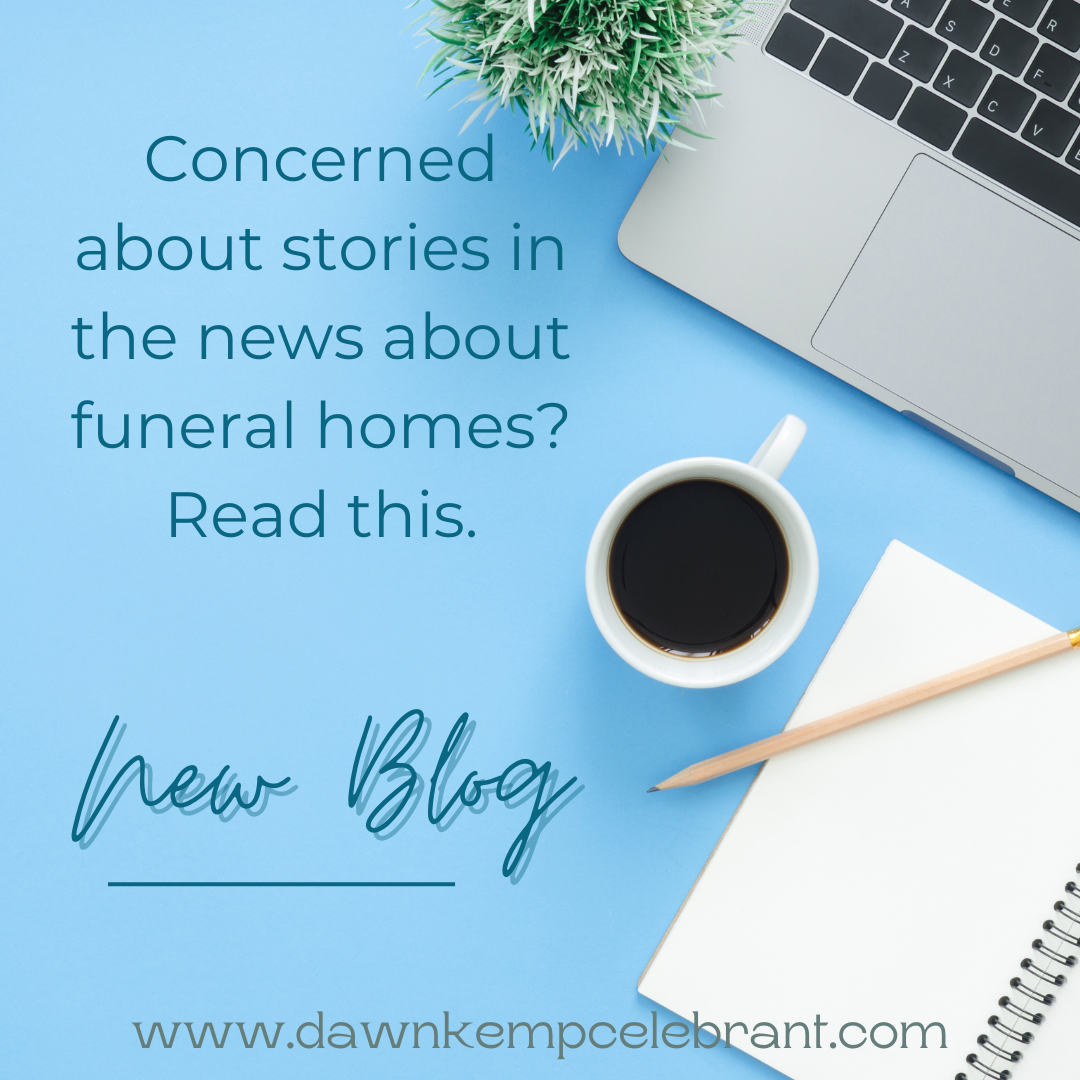
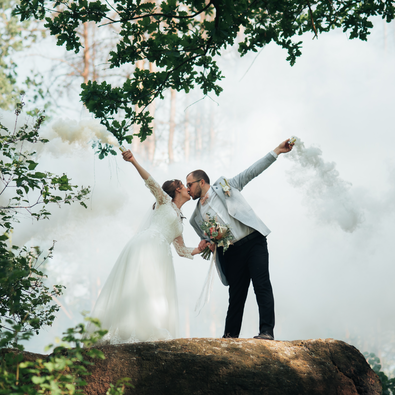
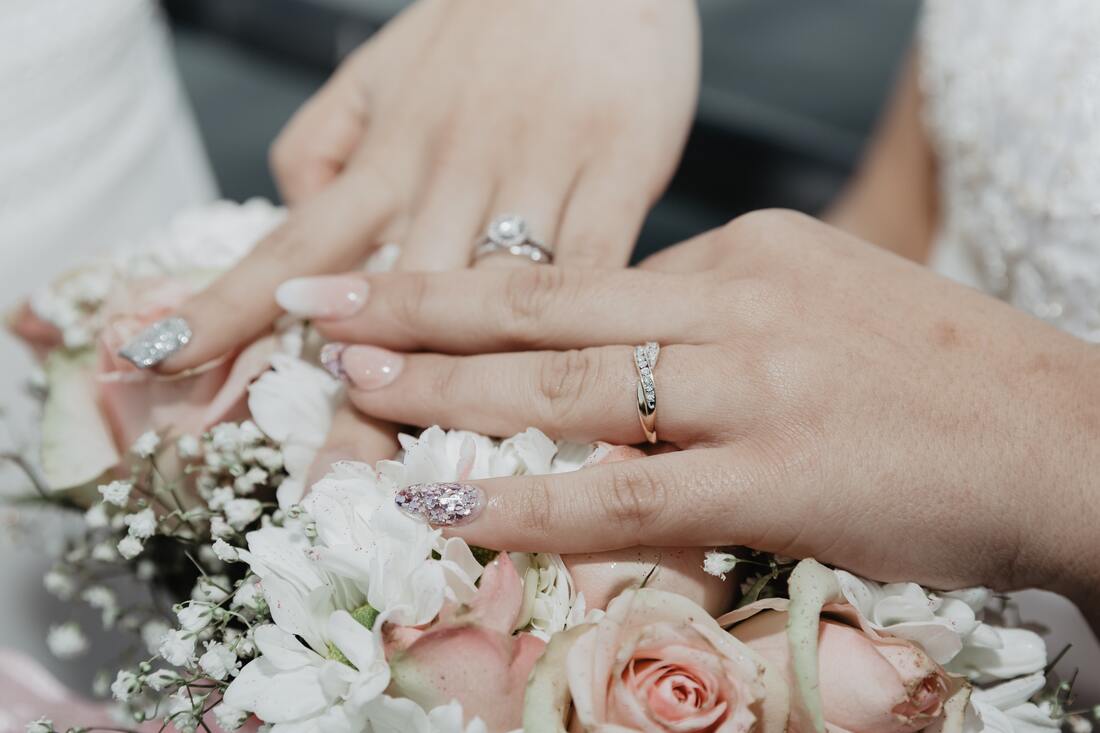
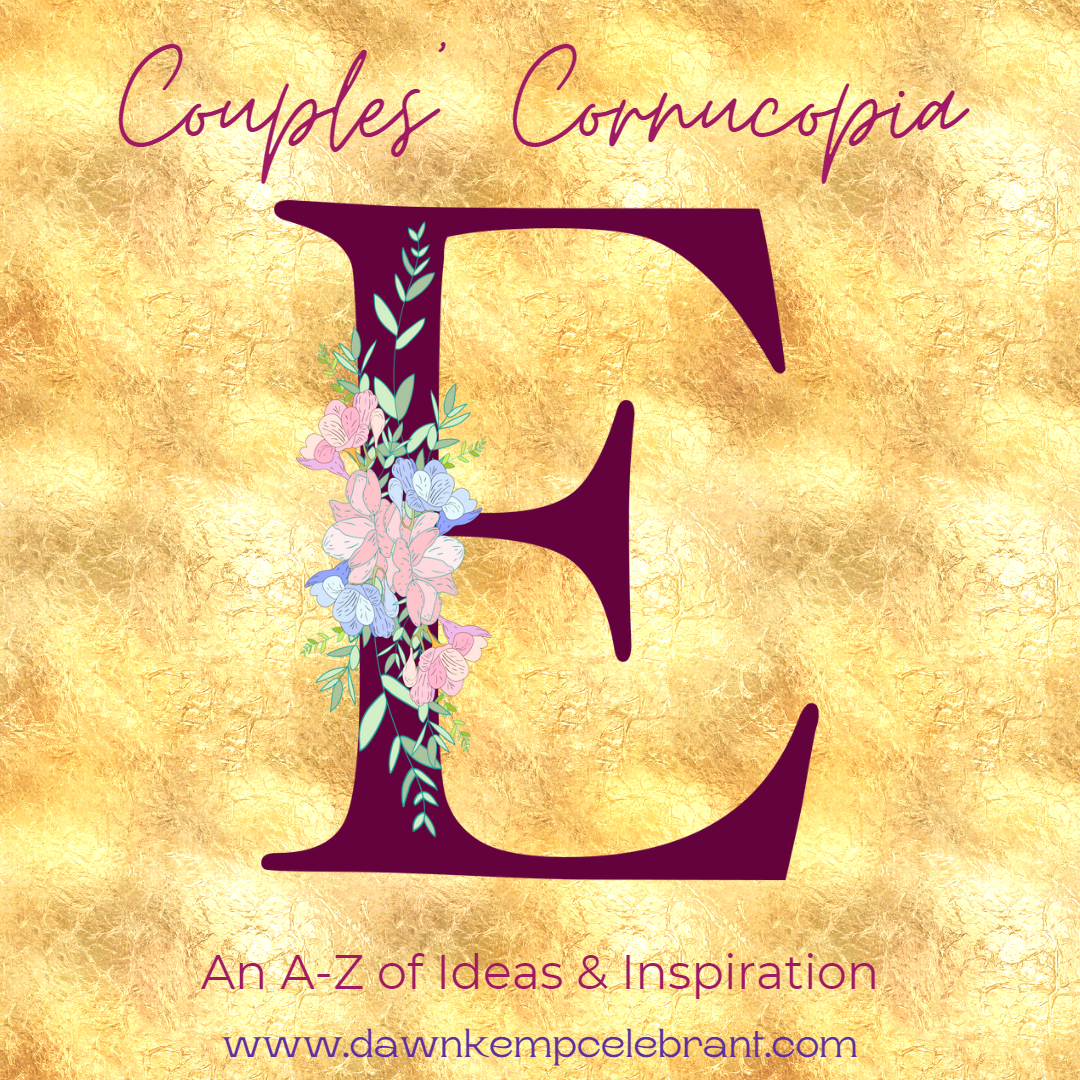
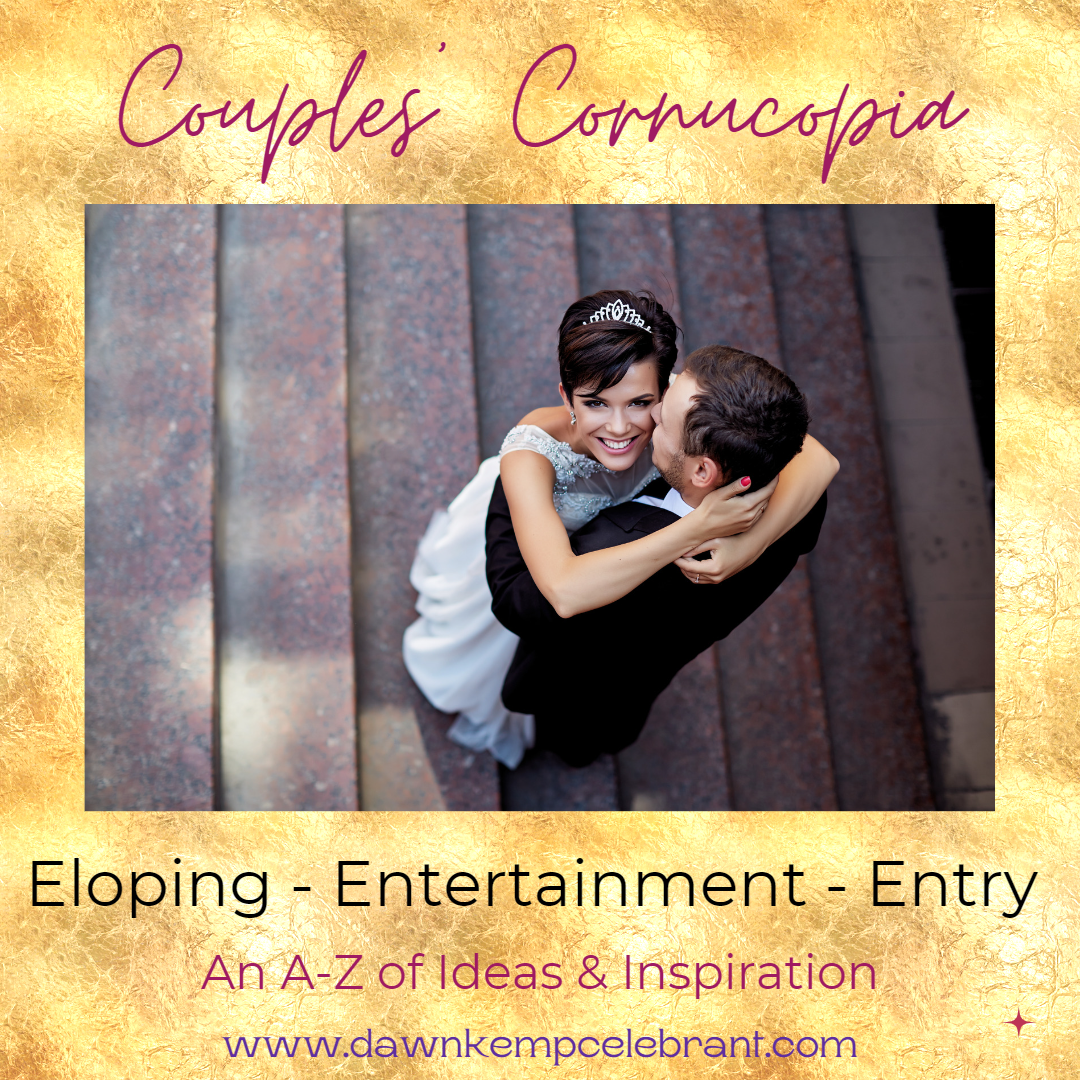
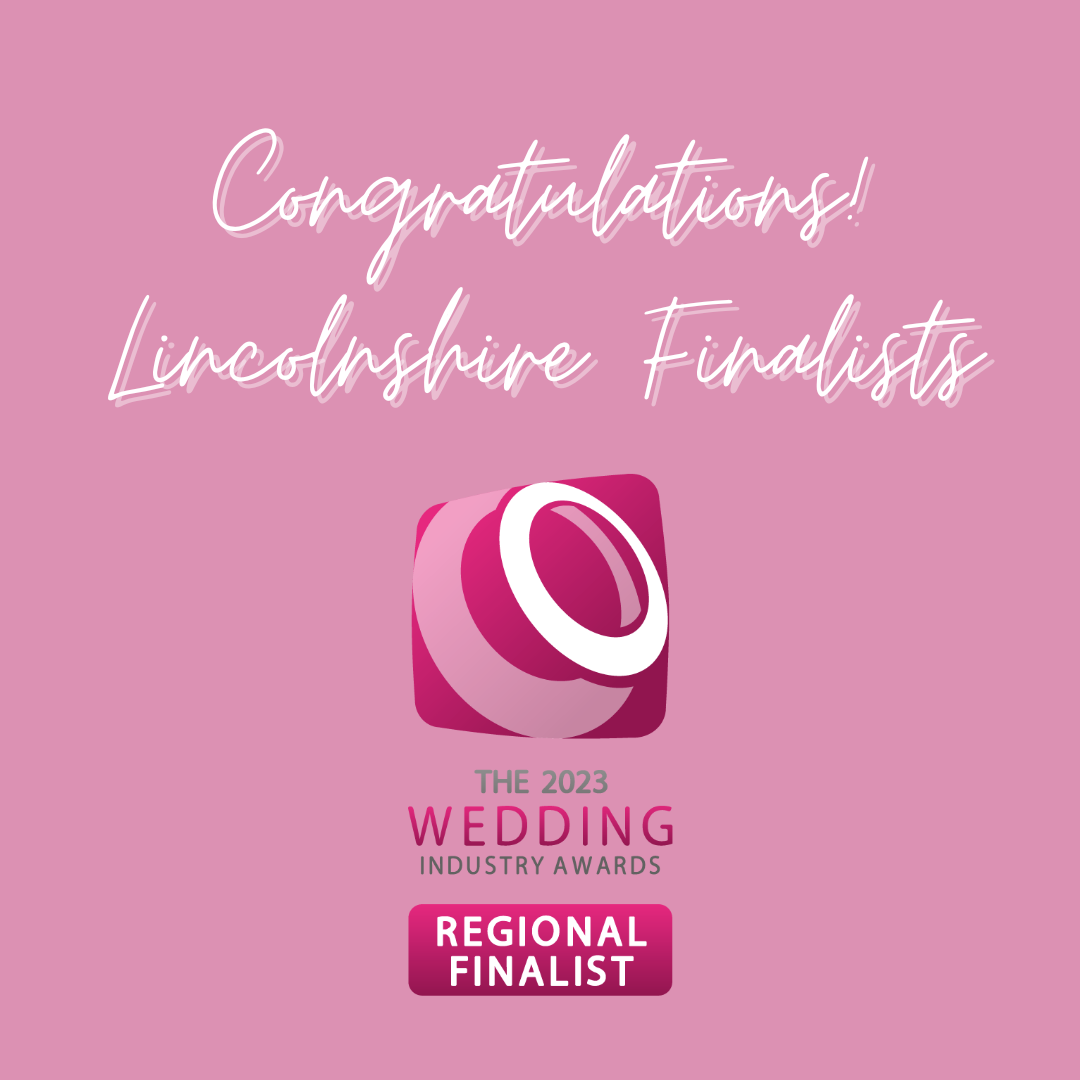
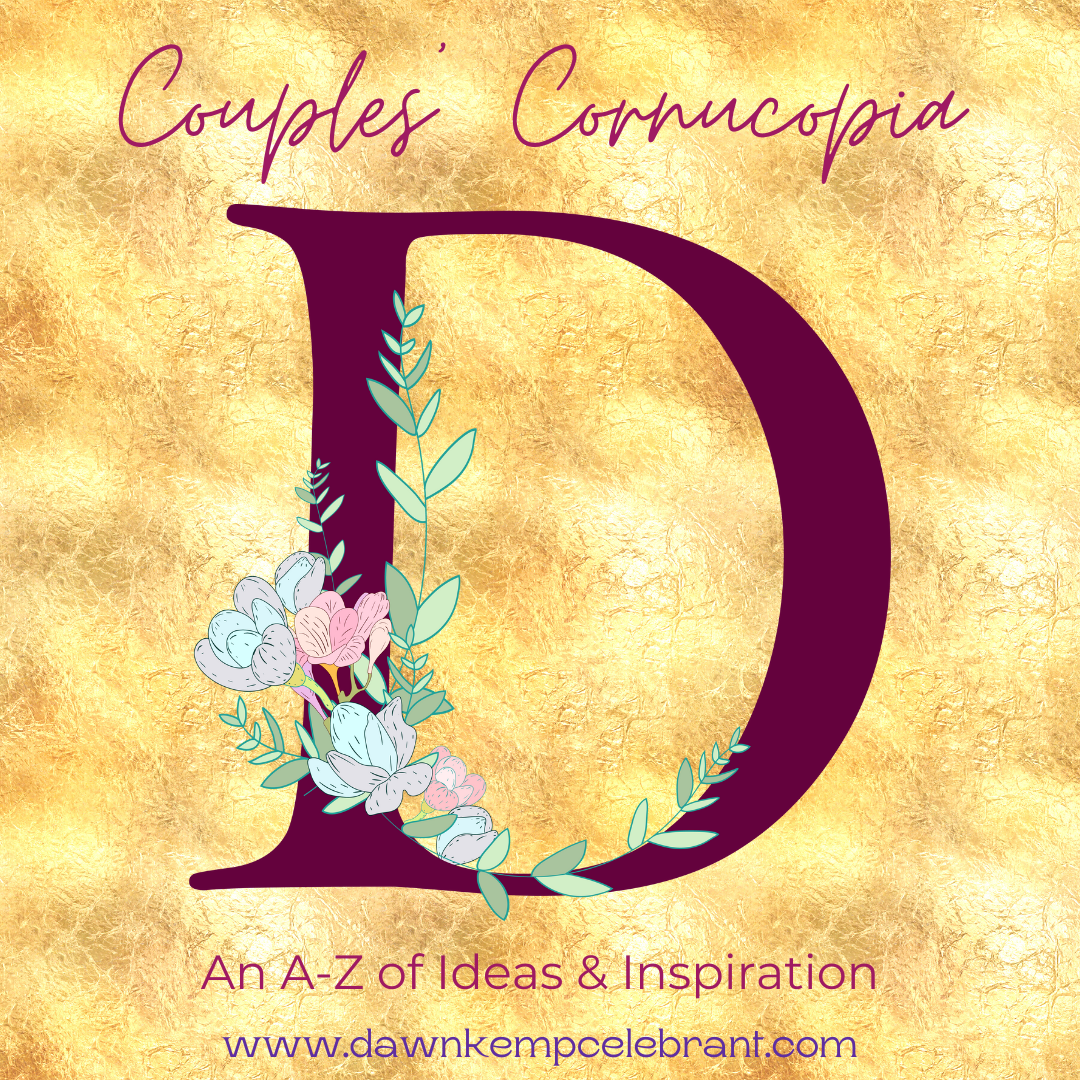
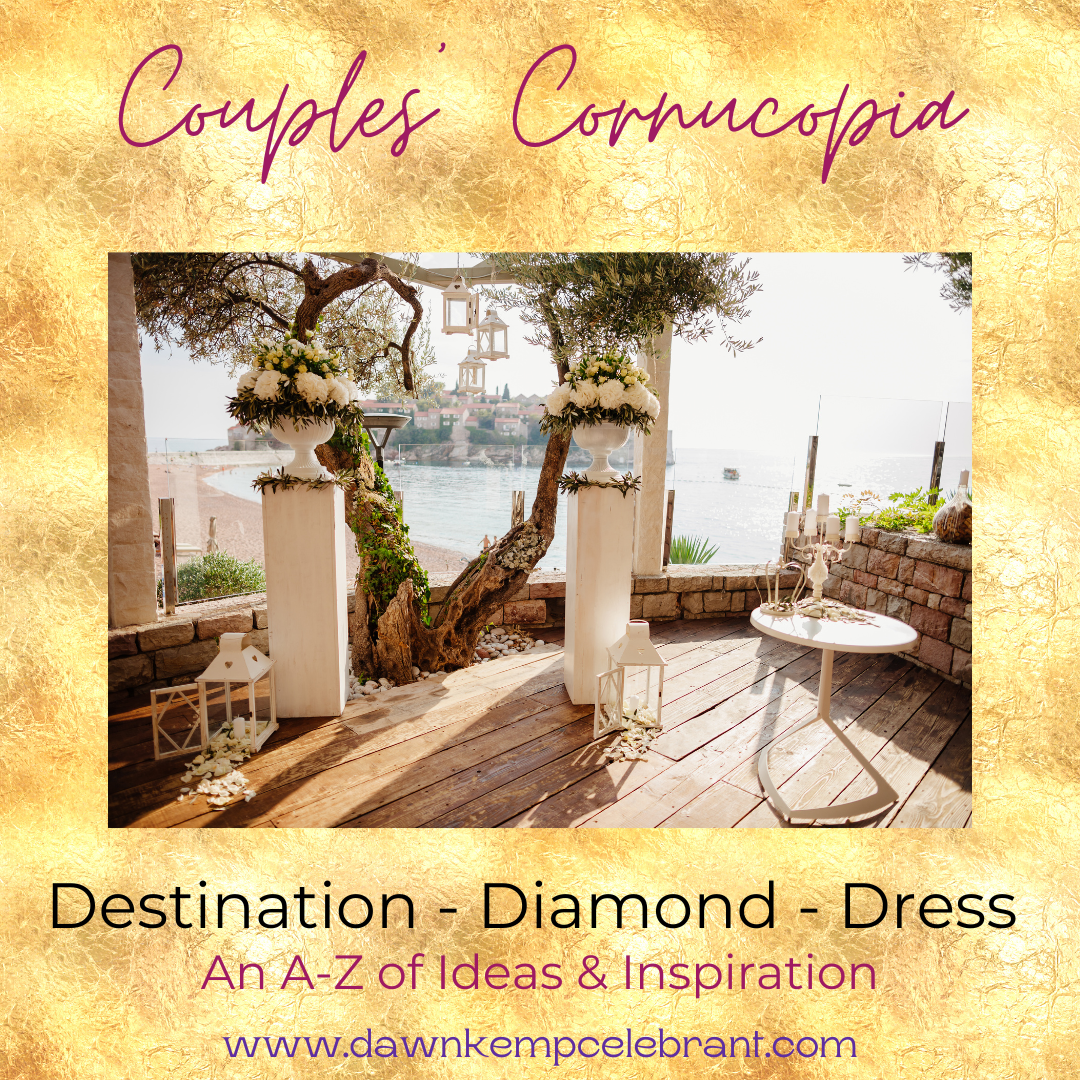
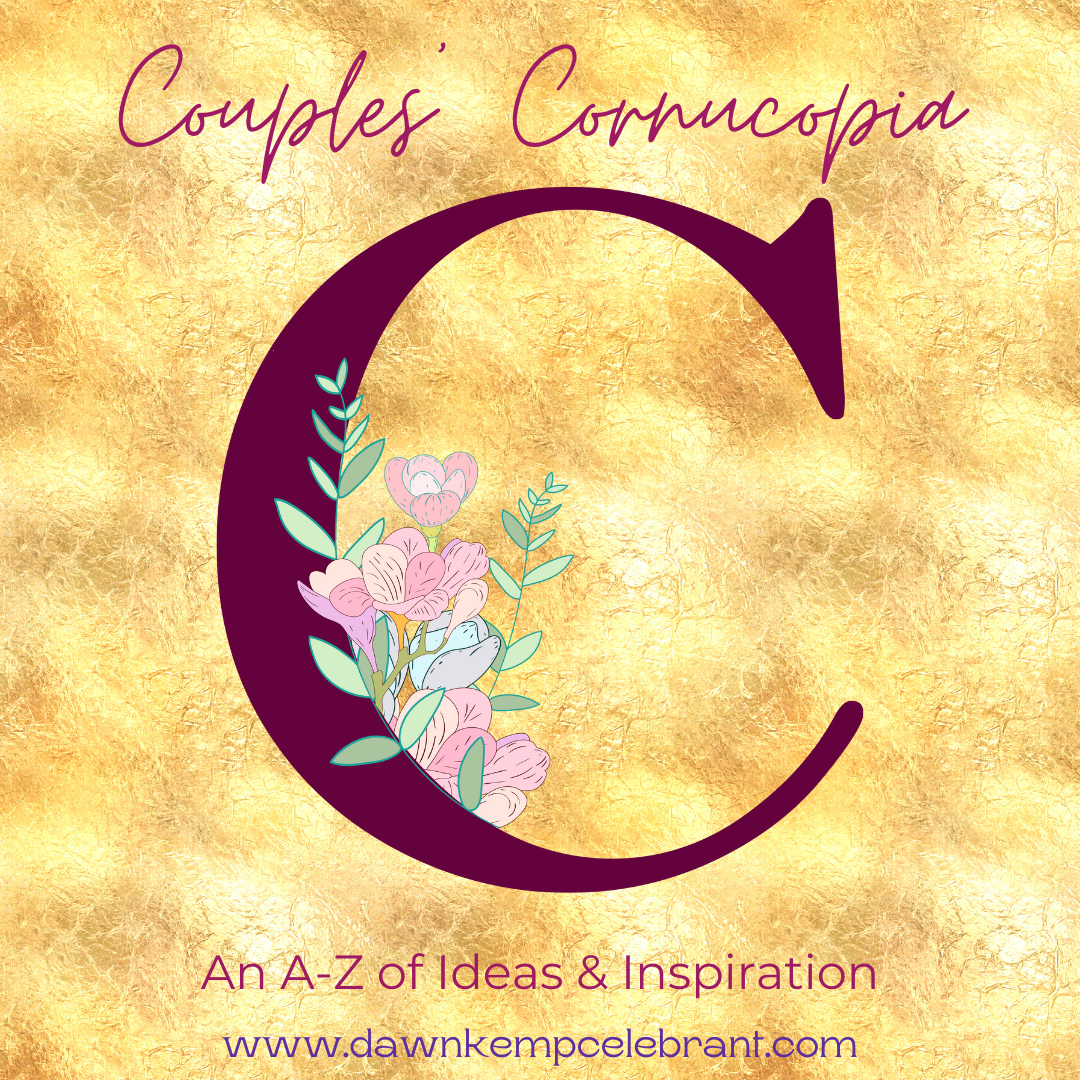
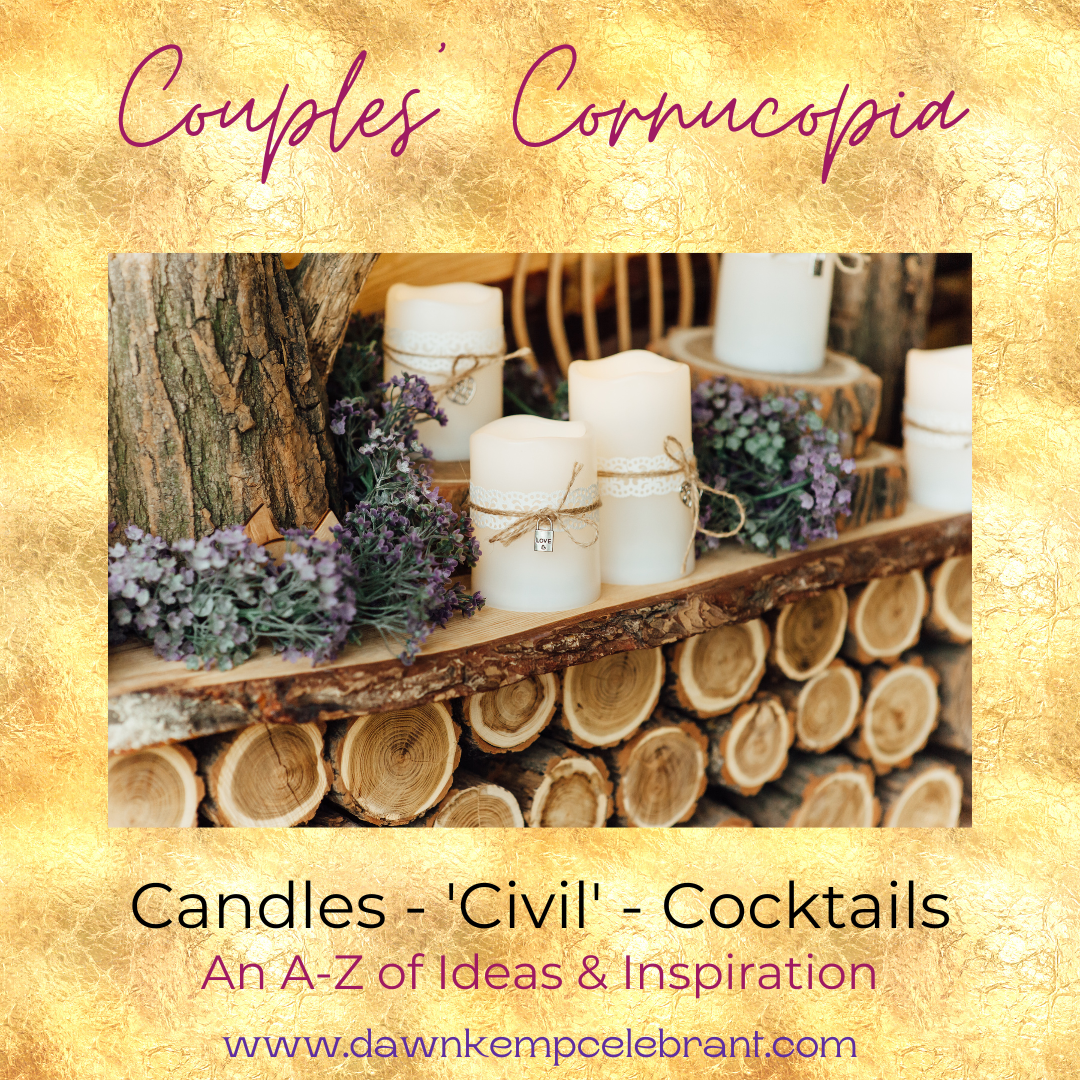
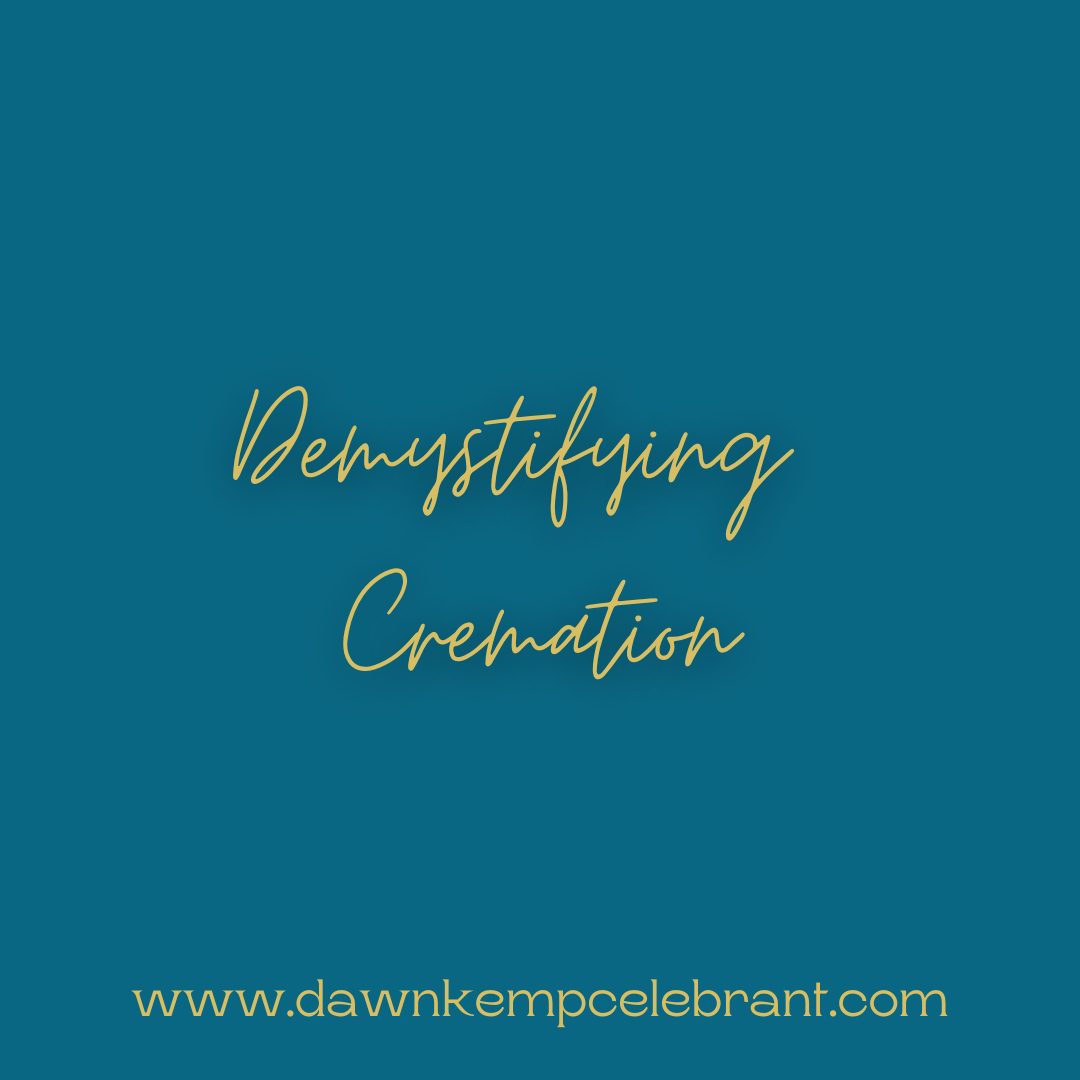
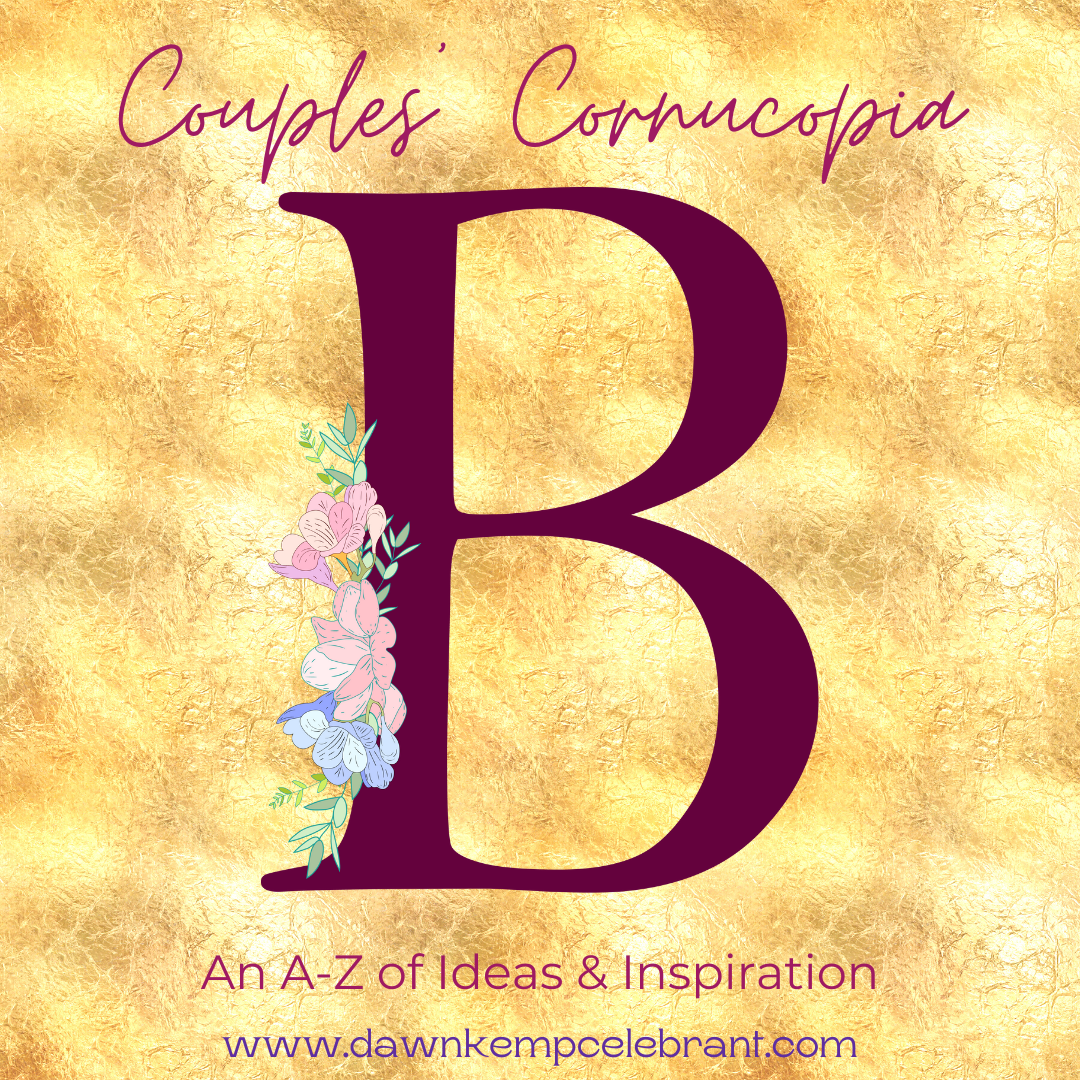
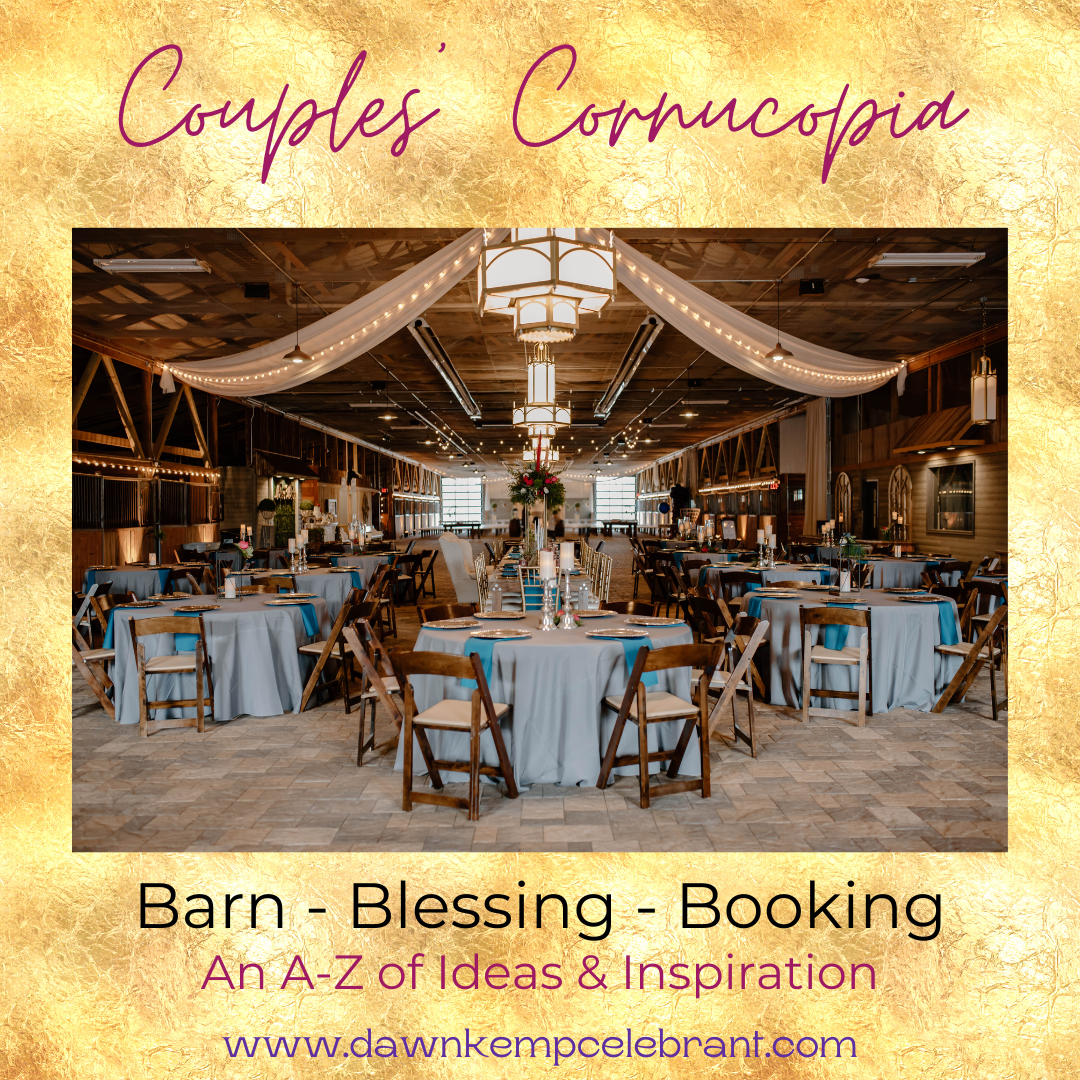
 RSS Feed
RSS Feed
